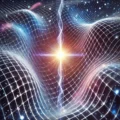God does not play dice with the universe.
The Einstein-Bohr dichotomy refers to the philosophical and conceptual debate between Albert Einstein and Niels Bohr regarding the nature of quantum mechanics. This debate primarily took place during the early and mid-20th century. Einstein, a pioneer in the development of quantum theory, was uneasy with its probabilistic and indeterministic nature, famously stating that “God does not play dice with the universe.” He sought a deterministic explanation for quantum phenomena and was critical of the inherent uncertainty introduced by quantum mechanics.
Niels Bohr, on the other hand, was one of the founding fathers of quantum mechanics and argued for a statistical and probabilistic interpretation of the theory. He believed that the fundamental nature of quantum entities, such as particles, was inherently uncertain and could only be described in terms of probabilities.
The Einstein-Bohr debates often revolved around the concept of “entanglement,” where particles become correlated in ways that defy classical intuition. Einstein famously referred to entanglement as “spooky action at a distance.”
In 1964, physicist John Bell formulated a set of inequalities, known as Bell’s inequalities, which could be tested experimentally to determine whether quantum correlations were compatible with local realism—a worldview where physical properties exist independently of observation and have definite values before being measured. In 1975, John Clauser conducted experiments that tested Bell’s inequalities and found results consistent with quantum predictions, challenging the possibility of local hidden variables.
Clauser’s experiments, along with subsequent research, supported the predictions of quantum mechanics and demonstrated the violation of Bell’s inequalities. This violation implied that the quantum world does not adhere to local realism, providing experimental evidence in favor of Bohr’s probabilistic interpretation over Einstein’s deterministic preferences. The findings highlighted the profound and non-intuitive nature of quantum entanglement, resolving the Einstein-Bohr dichotomy in favor of the probabilistic framework of quantum mechanics.
